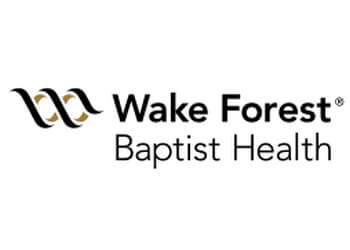

Wake Forest proposes to honor another form of excellence: character.Įach incoming class will include a small, selective cohort of top students who will be awarded a full scholarship, based on merit, toward their educational costs. Many colleges and universities offer full scholarships based on academic achievement, perfect test scores, math and science awards, or accolades in music, art and theatre. In short, we want exceptional students whose lives manifest great character and who seek out a collegiate experience in which leadership and character development will be central. We seek to attract students who have shown virtues such as honesty, diligence, curiosity, generosity, humility and gratitude. We want students who have overcome great odds, worked hard to accomplish important goals and demonstrated the ability to work on behalf of others. We are looking for the best and brightest students who have demonstrated exceptional moral leadership, commitment and purpose. Graylyn Scholars are encouraged to apply for up to $5,000 for a research, study, or travel project during each of the three summers between the first and senior years.įinalists are invited to campus for interviews and are notified by the end of March.
#Wakeforest helicopter winston salem news plus#
The Graylyn Scholarship covers the annual cost of tuition, room and board, plus $3,400 for personal expenses. Further, Graylyn Scholars have typically been leaders in a variety of extracurricular pursuits and won recognition for their interests at the regional, state, or national level. Successful applicants have pursued the most challenging curriculum available to them and have achieved grade point averages and standardized test scores (if submitted) that place them in the top percentage in comparison to their peers. Additional renewable scholarships offered to first-year applicantsīegun in 1990, the Graylyn Scholarship is offered to one student each year and recognizes leadership and academic excellence, with funding provided by and in recognition of the Graylyn International Conference Center of Wake Forest University.Scholarships requiring an additional application or materials.First-year applicants are also automatically considered for scholarships that are available to all students. Merit Scholarships for first-year applicants include the Signature Scholarships (full-cost of attendance), other scholarships that require an additional application or materials, and additional scholarships that do not require any additional application or materials.

A separate application is required only if specified in the scholarship description. Please refer to the Scholarships Available to All Students section below for descriptions of permanently endowed need-based scholarships and other scholarships. Separate applications are not required, as recipients are selected based on data from the admission applications and the FAFSA ® and CSS Profile ® applications. Most scholarships at Wake Forest consider financial need as a recipient selection criterion. A family can estimate financial need by using the Net Price Calculator.Īpplicants who believe they might qualify for need-based aid should apply by January 1. Some merit-based scholarships also require financial need. The Wake Forest Scholars Office provides profiles of selected previous merit scholarship recipients. Recipients since 1986 have subsequently earned international and national honors including thirteen Rhodes Scholarships, three Marshall Scholarships, twelve Truman Scholarships, over ninety Fulbright Scholars, and other honors including Gates, Goldwater, Beinecke, and Luce. Merit scholarship programs recognize extraordinary achievement, leadership, and talent. Most scholarships (including the full-cost of attendance Signature Scholarships) do not require a scholarship application, but only a completed admission application by November 15. Finalists for scholarships that require comprehensive interviews or auditions are notified by April. Wake Forest’s Office of Undergraduate Admissions offers merit scholarships to fewer than 3% of first-year applicants.


 0 kommentar(er)
0 kommentar(er)
